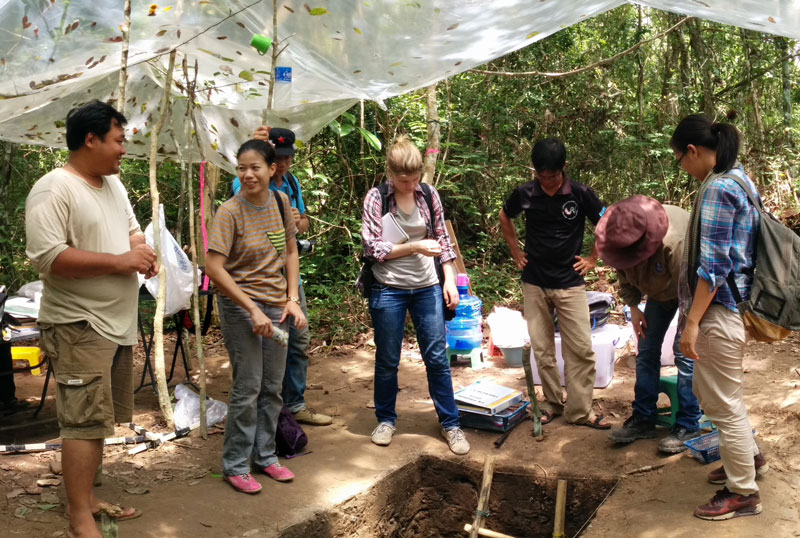The Henry Luce Foundation is delighted to announce three grants totaling $2,850,000, awarded through the third round of the Luce Initiative on Southeast Asia (LuceSEA), which aims to strengthen and support innovative teaching, research, collaboration, and scholarly infrastructure in the study of Southeast Asia.
The three grants described below support both institution and field building in the United States and in Southeast Asia. The projects emphasize place-based knowledge, employ community-engaged approaches, and explore the role that universities can play in society. Through investments in cross-disciplinary, multisectoral, transnational collaborations and networks such as these, LuceSEA hopes to encourage new directions in teaching and research that will have expansive and multigenerational impact on the study of Southeast Asia.
Singapore University of Social Sciences — Southeast Asia Neighborhoods Network 2.0: Communities of Learning, Research and Teaching Collaborative – a five-year grant of $850,000
SEANNET 2.0 will involve case studies at 11 sites in 9 SEA countries to investigate how neighborhoods address challenges in areas such as environmental degradation, public health, commodification of space, migration, arts, heritage, and technologization. Teams of local and international faculty and students will conduct research alongside community partners. Mobility fellowships for research and joint supervision of doctoral students will facilitate training and exchanges across the network, which also includes the International Institute of Asian Studies, Yale University’s Council on Southeast Asia Studies, and the Built Environment PhD Program at University of Washington. An online platform for teaching, hosted by SUSS, will curate resources developed through the collective. Public engagement activities, designed collaboratively with communities, will broaden audiences for the work.
University of California, Los Angeles — Early Modern Period Transitions in Southeast Asia: Environmental Dynamics, Social Change, and Globalization – a five-year grant of $740,000
UCLA will join forces with University of Hawai’i and University of Washington to establish the Program for Early Modern Southeast Asia. The period between 1400 and 1830 will be the focus of research by a network of scholars in archaeology, climate science, anthropology and history. Undergraduates, graduate students, and SEA-based early career scholars will participate in annual field schools and workshops in SEA, with an emphasis on previously neglected local and indigenous histories. A community engagement plan will bring local SEA stakeholders into the research process. PEMSEA incorporates outreach to heritage students and SEAsians in Los Angeles. The Program promises to bring SEA into global discussions on environmental change during the early modern period. The reconstruction of past environments will help contemporary researchers and policymakers understand the pace and threat of land-use changes in SEA today. Asian partners include National Chengchi University (Taiwan), Partido State University (Philippines) and Polytechnic University of the Philippines.
University of Wisconsin Foundation — Social Justice in Southeast Asia – a five-year grant of $1,260,000
Social justice will be the centerpiece of a set of activities and new faculty hires at UW Madison to re-envision research and teaching on SEA and prepare students for careers in diverse sectors. The hire of three assistant professors with research interests in SEA and social justice, one each in History and in Asian Languages and Cultures, and a joint hire in Anthropology/International Studies, will create synergies with other campus units and programs, including women and gender studies, human rights, legal studies, environmental studies, and public health. A cluster of social justice-themed courses will be developed for first-year students. A “Justice in SEA Lab” will support reading groups; dissertation workshops; and master classes with visiting SEA practitioners, activists and scholars; and involve academic/practitioner collaborations as well as public events and web resource creation. A racial justice-oriented Hmong studies program will connect SEA studies and Asian American studies through the Hmong Studies Consortium (with University of Minnesota and Chiang Mai University (CMU)). UWM and CMU will organize a “Re-envisioning and Decolonizing of SEA Studies” workshop in Thailand involving a range of regional partners.
***
Due to the COVID-19 pandemic and related challenges, Round Three was conducted as a limited, invitation-only competition based on compelling project ideas that emerged during LuceSEA’s first two years. Doing so allowed us to maintain LuceSEA’s momentum and pave the way for the resumption of an open fourth-round competition. Please see the invitation to submit inquiries for Round Four, which will open in August 2021.
Sign up for updates
Explore Themes and Ideas













































